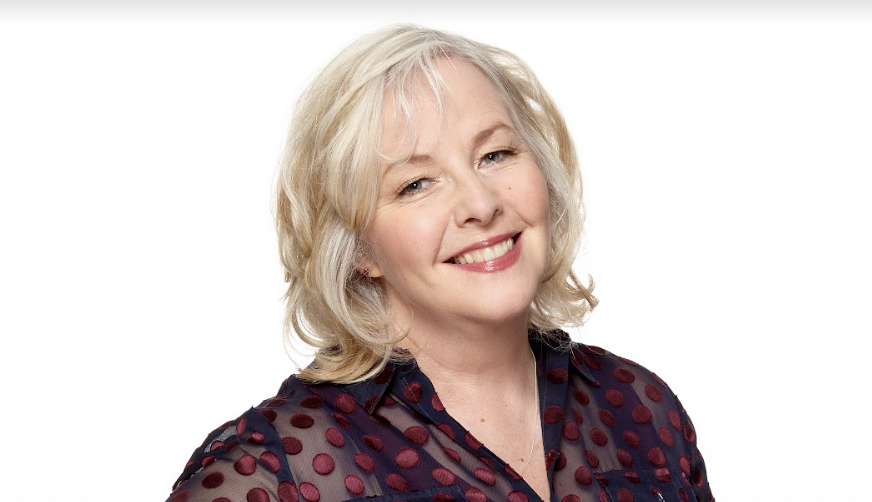Editor’s Note: Strong relationships are at the core of a happy life, but sometimes, dealing with the people in our lives is tricky. That’s why Thrive Global partnered with The Gottman Institute on this advice column, Asking for a Friend. Every week, Gottman’s relationship experts will answer your most pressing questions about navigating relationships—with romantic partners, family members, coworkers, friends, and more. Have a question? Send it to [email protected]!
Q: How do you know if you’ve found the person you’re meant to be with? —K.M.
A: It’s a profound and agonizing thing to wonder if there’s a better match for you out there somewhere. Did you choose the right person?
Here’s the truth. We all choose the wrong person if we expect them to make us happy all the time.
You ask how you can know if this is the person you’re meant to be with. You can’t. What you can know is whether or not you are in a relationship with someone you love, and whether or not you long to be happily ever after. But you can’t possibly know if this person is your soulmate.
Because there is no soulmate. If there were, I’d be married to Shaun Cassidy. In my teens I was absolutely sure he was the one for me. And I’m not being facetious here. What I want to help you examine is the belief that there is one special, destined person we are each meant to be with, and the unexamined assumption underneath that belief.
Longing for the perfect soulmate has the potential to doom your current relationship. No human can live up to the picture you have in your head of “The One.”
So, when you hit the inevitable rough patches in your romance, if you are not careful, you will interpret difficulties and disagreements as proof that you are not “meant” to be together, instead of seeing them for what they are — the growing pains of a real-life love affair. Long-term love can be hard.
Now for the good news. Great couples do exist. They are not soulmates, but they have good love skills. These “masters of relationships,” as John Gottman calls them, know how to cultivate a deep and connected friendship, manage conflict well, and support and share hopes and dreams. And while a few lucky couples seem to come by these relationship skills naturally, the rest of us can learn.
I want to encourage you to change your question. Instead of asking if this person is the one you are meant to be with, ask yourself, “Is my partner someone I can be happy with a lot of the time”? Examine whether the two of you can build the foundation of a great relationship, issues and all. Do you truly enjoy each other, even though you are different people? Can the two of you hang in through the bad times and learn ways to handle conflict and repair hurts? Is there enough overlap in your values and life goals?
Last month I worked with a woman who, just like you, was considering whether to quit or commit. Alysha* came to see me alone. Her boyfriend of three years, Eric, refused to come. Alysha says her interests have evolved, they’ve grown apart, and they have little to talk about. When she tries to talk to Eric about her relationship concerns, he stonewalls her and refuses to answer her questions, turning to his PlayStation instead.
On the surface, another couple I saw had similar issues. Pierre is a sculptor who pays his rent by bartending. Scott is a dental surgeon. Their biggest problem is that Scott has a temper and when he is annoyed he flashes to anger and says critical, mean things — picking apart anything Pierre does or says. But when they are calm, Scott and Pierre are able to talk about their problems. They come to couples therapy with the wish to improve their communication and create more passion. And though their lifestyles are very different, they truly enjoy spending time in each other’s world. Scott says, “The last thing I want in a partner is another dentist. At the end of the day, I’d way rather hear about abstract art and the latest tales from the cocktail bar than gums and teeth!”
In the end, Alysha decided to break up with Eric, while Pierre and Scott are practicing how to fight fair and have decided to move in together.
So how can you evaluate your current relationship and decide whether to stay or go?
First, kill the soulmate fantasy. Don’t put unrealistic pressure on your real-life relationship. Stop looking for perfection, and evaluate whether you and your imperfect partner have the basic elements for successful, long-term love: friendship, conflict management, and some shared goals and values.
Next, I suggest you make what I call a Lover List. It’s important to get clear on what you want in your relationship. After all, you are choosing a person to spend your life with, so shop mindfully. Most people spend more time deciding what features they want in a new washing machine than the features they want in a mate.
Grab a pen and paper. Writing this down is more powerful that simply thinking about it. List all the things you want in your lover and love relationship, from the sublime to the ridiculous. You might want someone with a sense of humor, who wants kids one day, loves to travel, is a passionate lover, is kind and caring toward your aging parents, owns a ski chalet in Switzerland, is gorgeous, or loves Game of Thrones.
Next, whittle it down to your top ten list. Be very thoughtful here — What are the ten most important things you want and need in a mate and in a relationship? Get clarity. You probably don’t really need that ski chalet, but if having children is a fundamental life goal for you, it has to be in the top ten.
Here’s the catch. No real-life human will offer ten out of ten of the things you want. That’s the mythical soulmate — the one who lives in the enchanted forest next to the unicorn (and, apparently, Shaun Cassidy). Most happy couples I speak to in my private practice, or coach in my online programs, say their beloved mate has about seven of the ten qualities they want in a partner.
How about you? How many of your Lover List qualities does your current partner demonstrate, at least part of the time? If you want to be happy in love — and I know you do — look carefully for the qualities your partner has, instead of the ones they lack.
Am I suggesting you settle for mediocre love? Absolutely not. I am a romantic, as well as a scientist, and I absolutely believe great love affairs exist. But they are created, not destined, and they are flawed, not perfect.
In my view, that makes them all the more precious. Destiny didn’t hand you an admirable relationship, you did. So stop looking for the one. Instead, look again at the beautiful, imperfect person that is standing right in front of you.
As long as you’ve got the building blocks, and the willingness to learn and grow, you can create a realistic (mostly) happy ever after — and be one hundred percent happy with seven out of ten.
*Names have been changed to protect the identities of my clients. Their stories are real.
Follow us on Facebook and sign up for our weekly newsletter for all the latest news on how you can keep Thriving.
More from Asking for a Friend here.


